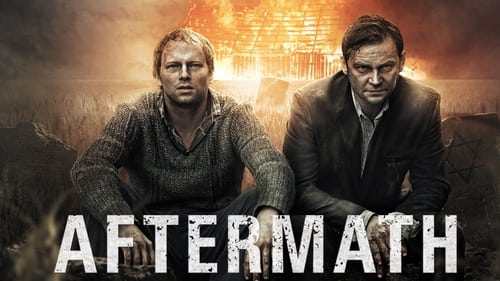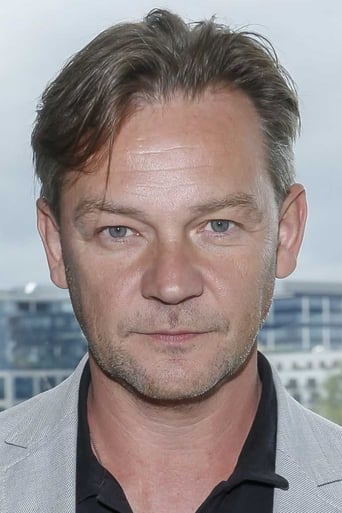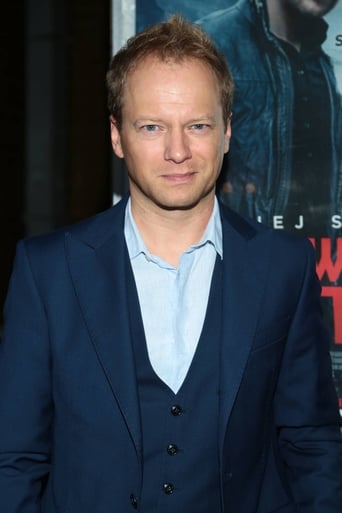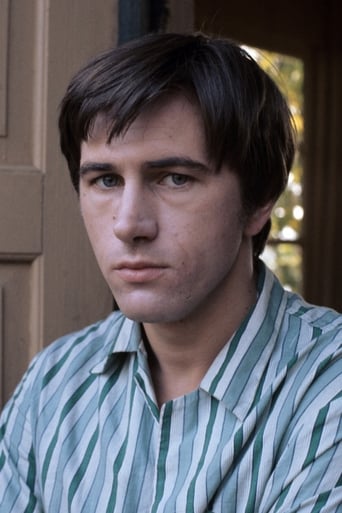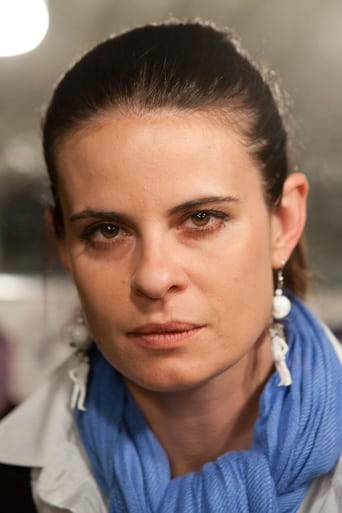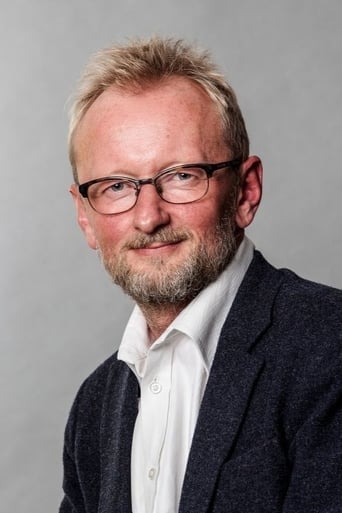Unlimitedia
Sick Product of a Sick System
Kidskycom
It's funny watching the elements come together in this complicated scam. On one hand, the set-up isn't quite as complex as it seems, but there's an easy sense of fun in every exchange.
Kirandeep Yoder
The joyful confection is coated in a sparkly gloss, bright enough to gleam from the darkest, most cynical corners.
Scarlet
The film never slows down or bores, plunging from one harrowing sequence to the next.
Leonard Kniffel
I have become increasingly interested in films and books that address the topic of Polish anti-Semitism. Initially, I approached the topic defensively. How, I wondered, did France and Italy get so conveniently off the hook in the post war years, when the capitulation and collaboration with the Nazis that occurred in those countries is indisputable? Poland's government was the only one that did not capitulate to the Nazis during World War II, and that is part of the reason Warsaw was reduced to rubble. Nazi punishment for Poles during the war was exceptionally harsh; whole families were put to death for harboring Jews.Aftermath, directed by Wladyslaw Pasikowski, is another example of a new generation of Polish writers and artists coming to terms with a dark past. The film begins with the return of a man to his hometown after 20 years of living in Chicago. Something is clearly amiss. His brother has inexplicably begun unearthing Jewish gravestones that were used as paving blocks after the war. The neighbors are unaccountably hostile. The buried secrets concern the wartime fate of the local Jews who, contrary to official history, were not deported by the Nazi occupiers but massacred in a single day by their Gentile neighbors. Released in Poland in 2012, Aftermath has reignited the controversy that surrounded the publication in 2000 of the book Neighbors by the historian Jan T. Gross, a searing account of the covered-up slaughter in Jedwabne, a once half-Jewish village in northeastern Poland where hundreds of Jews, including children, were murdered in a savage pogrom in 1941.In Afternmath, Poles, accustomed to seeing themselves as victims during World War II, are confronted with an incident in which their countrymen had been victimizers. Nationalists are incensed. Others have found this revelation evidence of a nation coming to terms with its disturbing past. Pasikowski saw the subject as material for a movie. "The film isn't an adaptation of the book, which is documented and factual, but the film did grow out of it, since it was the source of my knowledge and shame," he has said. Aftermath, which is set around 2001, at the time of the Jedwabne debate (to which the film never explicitly refers) in the same rural region of northeast Poland, and draws not only on the book Neighbors but also the 1996 documentary Shtetl, made by Marian Marzynski. Obsessed with the idea of rescuing the remnants of Jewish life, Pasikowski's protagonist, Jozef Kalina (Maciej Stuhr), is subjected to intense hostility. Jozef is ostracized by his neighbors. His wife, unable to withstand the pressure, has left for Chicago. His older brother, Franciszek (Ireneusz Czop), who departed Poland on the eve of the 1981 declaration of martial law, returns to investigate and finds himself unwillingly drawn into his brother's mission, excavating the past with increasingly violent and ultimately devastating results. As a naive outsider learning about World War II from people who survived it and their children, I was obsessed during the seven months in 2000 that I lived in Poland with the enormity of Poland's loss during World War II. I visited cemetery after cemetery. In Biala Podlaska, the headstones in the Jewish cemetery had all been taken for building material; the cemetery itself was there, a large green lawn that somebody kept mowed. In Wyszkow, the stones had been recovered and built into a monument that reminded me of the Vietnam Memorial in Washington, only without visitors. In Nowe Miasto Lubawskie, where I lived, we found a stash of Jewish headstones in storage in the sanitation services yard, set aside after they had been unearthed during road construction. I shocked at how Jewish tombstones had been treated after the war but no more or less shocked after asking a priest to help me find my grandfather's grave in the Catholic cemetery, "He is buried there, for sure, but in those days people did not buy these big gravestones like today. A wooden cross. It lasted maybe ten, twenty years, and that's it." Then, as years passed, new graves were dug on top of the old.Watching Aftermath with my knowledge and experience of Poland, I wondered what it would be like to see this film without understanding that 6 million Poles were murdered during the war, half of them Jews and half of them ethnic Poles, without understanding that prewar anti-Semitism was probably less threatening in Poland than in any other European country, without knowing that there are more Poles (6,394) named on Yad Vashem than any other nationality and that one of Yad Vashem's principal duties is to convey the gratitude of the State of Israel and the Jewish people to non-Jews who risked their lives to save Jews during the Holocaust. This is the danger of learning history through movies, which must simultaneously serve as entertainment.
turkucniejadek3
Good Day, I registered to IMDb for the first time, just for this title... This is very important moment of polish history and very important movie to understand this history. I must confess first that I'm from family very close connected to connected to WWII Underground Home Army in Warsaw. Is someone has something to say about ghettos in Warsaw and Nazi occupation, my family was part of it from creating opposition to lost life in Auschwitz. My uncle died in Auschwitz for being family of important man before 1939. He was 16 years old boy. Pole, not Jew. Whole my family was destined to die in Auschwitz, but managed to avoid it, except my young uncle... Back to movie. My family was in Warsaw, was in underground and... was helping Jews in Ghetto and I also have Jew family (and proud of it). It was very hard to believe that Jedwabne and similar facts happened, especially for my grand dad, but... Even thought he was victim of denunciation, he was also victim of small peasant communities; like Jedwabne. He had to pay to not be arrested by Gestapo and he had to pay with family precious relics and everything he had. Just because peasants knew who he was. And he had to eat. Probably we will never know how many people died because of mentality of people like in "Poklosie"... Creators of "Poklosie" including actors are "enemy of the state", but many people still remember who made money for deaths. Yes, I know, it's short and not important comment, but if you know how less popular version of polish history looked like - watch the movie. No, it was not always like this - this is why most Israelis has polish roots, but we should remember of German, French, Dutch, French, Russian and other people who helped Nazis just for money.No comment. you just have to see this movie, no matter what you think. With Kind Regards, B. Radziszewski
Seemp deHond
I feel sad for the review where one feels attacked and is explaining at length how this movie makes all Polish anti-semites. This is merely silly of course. History doesn't change by denying it. Painful but true, who ever survived the German camps and made it back was to find everything taken from them. It's a part of history and nobody has to be offended when movies are based on our gruesome events. It's no generalization. About the movie: excellent cast, excellent story build up and absolutely worth your time. Even for those not interested in the historical part. While the story unfolds there is a intense sense of claustrophobia as the small town has to let go of generations old secrets. Daring script and great pacing.
tintin1-2
Contrary to what other people might say, this film is not (all) about Polish resentment towards Jews. As stated in the summary, it tackles another vice: every human's unconditional reflex to do just about anything to avoid pleading guilty.As it happens, something bad - a euphemism I'm using instead of a more precise spoiler - happened to a group of Jewish inhabitants of a town lost in the Polish countryside. It was during WWII, times were tough, everyone wanted to survive. Plus, better strange "them" than familiar "us".A myriad excuses boiled down to one act of violence after which the town went back to post-war normalcy. People were born as usual, grew food all working week, went to church on Sundays, died. The cycle of life seemed unbroken, save for that nuisance from, as the movie's events take place around the year 2000, over 50 years ago. And no good can come from pondering about it.The film's two protagonists learn about it the hard way. They are two brothers, one of whom has just come back after living for 20 years in the USA. Surprisingly, his mentality remained unchanged there. Contrary to that, his younger brother, who stayed in their backwater little town, had undergone a curious transformation: he started asking questions about mysterious stone tablets lying in the mud here and there.To say that the acting is solid is an understatement. While perhaps not top-notch effort from all of the cast, overall it's nearly as good as it gets. You can expect stellar performances from a handful of elderly actors playing tertiary characters, as well as from Ireneusz Czop, one of the two main characters. The writing is fine: conversations seem natural, and there are a few very powerful monologues.So, if „Poklosie" is such a well-acted and written movie with good cinematography, music and editing – if there is nothing wrong with it, why not more than 7/10 from me? My only real problem with it is that when it comes to symbolism, the director hammed it up. I mean, the burning building, the dark forest, the good priest's heart attack at that particular moment, the rain, the way a person dies in the movie … come on. Way too dramatic, I say. Fear not, though, as most of my uneasiness comes from the fact that I seriously can't stand overly symbolic images. If you're not particular about them (think moderated Independence Day) – forget what I said. Just find and watch this film, I highly recommend it.Two more things. First, the movie's title means „The Reaping", as in „Harvest", but also „Consequences". My suggestion for the English title would be „What You Sow".Second, „Poklosie" is based on true events. Not, and I mean it, NOT like some cheap horror story. Something very similar to what is unveiled in this film really happened in at least one place in Poland during World War II. Hard to imagine, hard to stomach. Hard to remember.

